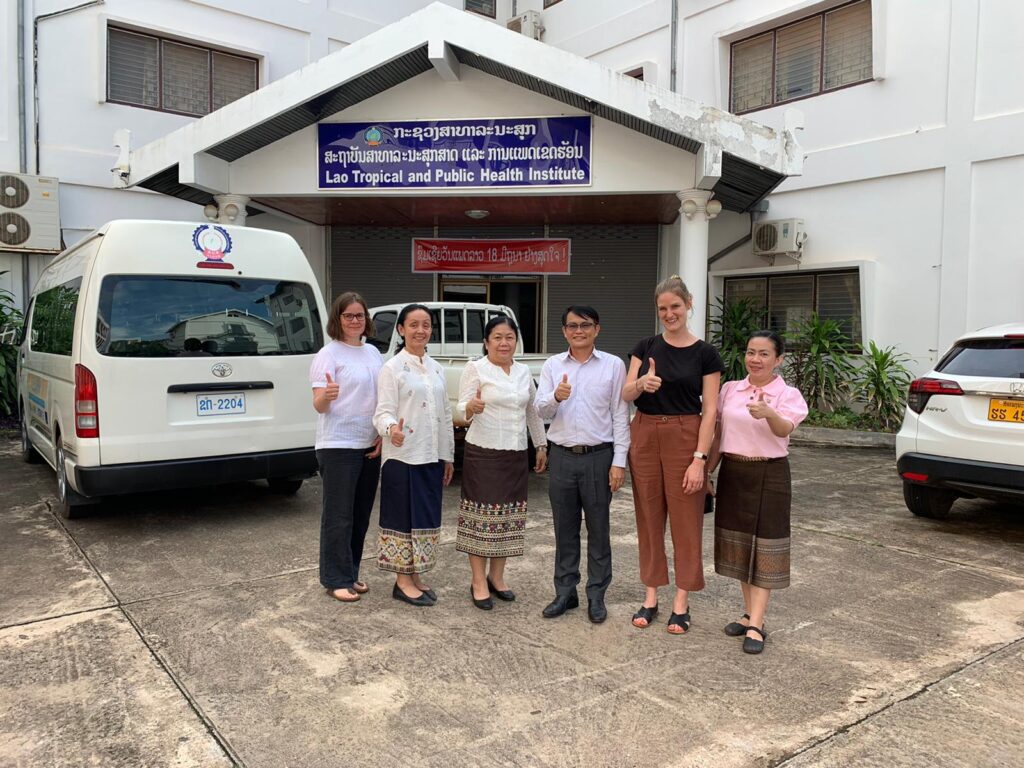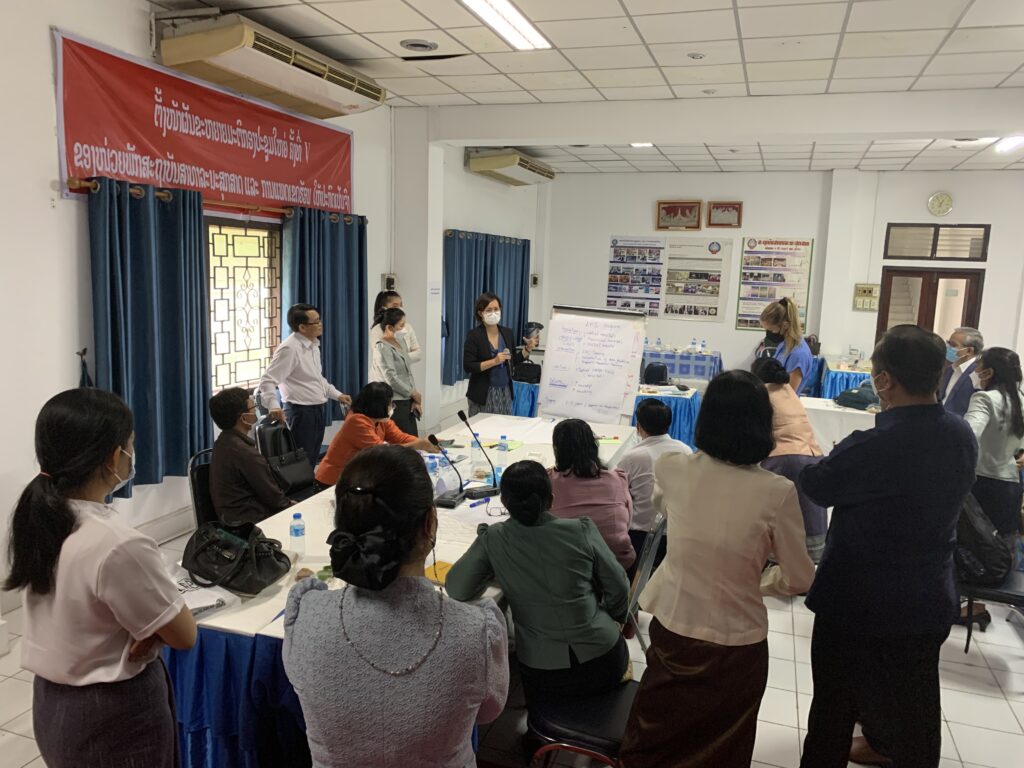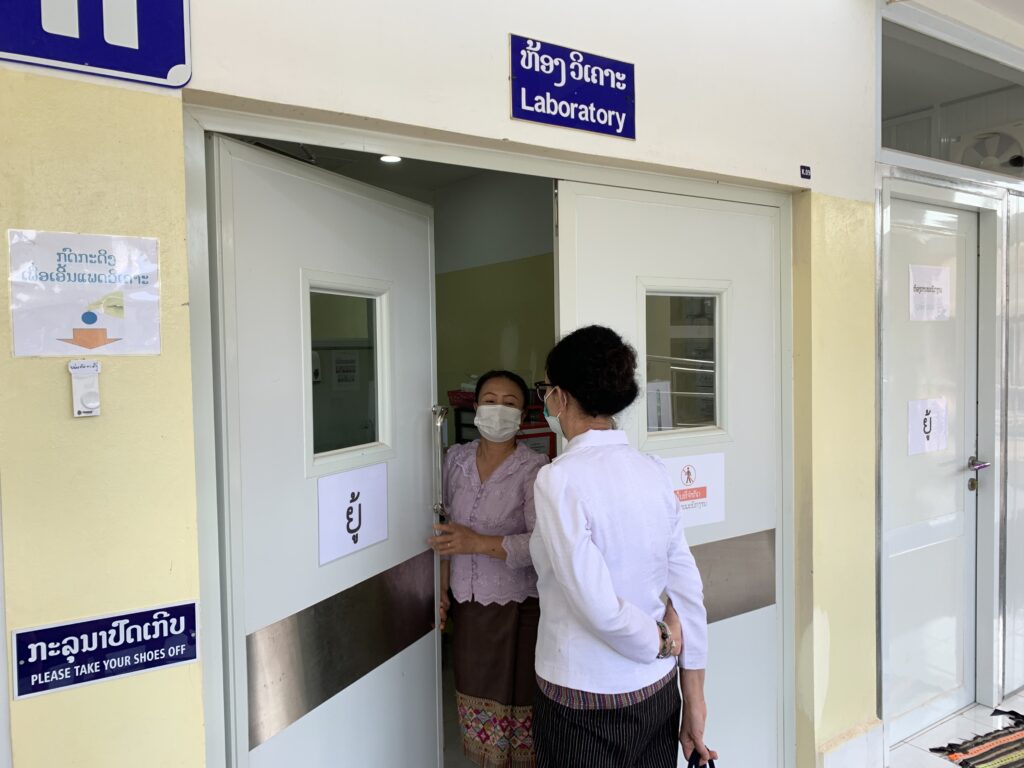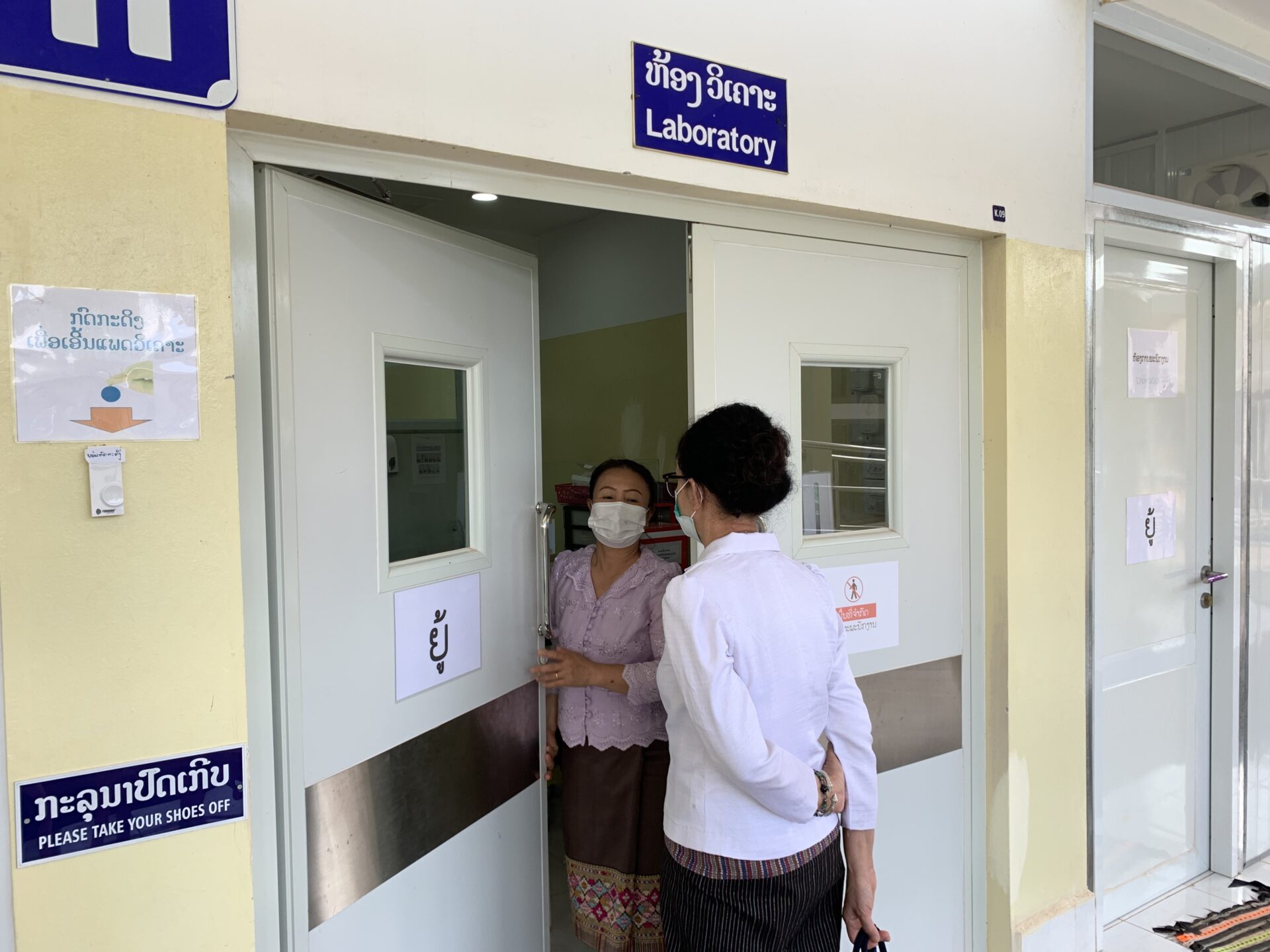Improving appropriate antimicrobial use among pregnant and postpartum women, and children under 5 years old in hospitals in Lao PDR
Context
Lao People’s Democratic Republic (Lao PDR) is in Southeast Asia, a region where antimicrobial resistance (AMR) has been on the rise in recent years. In 2016, the Lao PDR Ministry of Health (MOH) established the Global Antibiotic Resistance Partnership committee which served as a technical working group reviewing scientific evidence for combatting AMR and providing evidence to the MOH AMR surveillance and control committee. In 2017, the AMR policy was endorsed, and the National Action Plan (NAP) was put into effect from 2019 to 2023.
The NAP addresses the problem of AMR within the framework of One Health and aims to enhance Lao PDR’s capability for using modern technology for the diagnosis of AMR in the country. The key activities in this NAP include:
- Setting up the standardized reference laboratory (National Centre for Laboratory and Epidemiology-NCLE)
- Strengthening laboratory capacity through biannual training on laboratory techniques and AMR surveillance
- Monitoring AMR and antimicrobial use (AMU), including appropriateness, in human and animal feeds and food products
- Establishing a centralised laboratory database for AMR surveillance data
Problem
Overuse and misuse of antibiotics is frequently reported for obstetric conditions and procedures, with potential impacts for both the mother and the baby, as well as increased antibiotic resistance. In Lao PDR, the use of antibiotics is widely practiced for both self-medication and by health practitioners. In a study of 608 patients hospitalized at the obstetric and gynaecological wards, 23% received antibiotic prescriptions, and 14% of 1,885 children who came for healthcare services at paediatric wards received antibiotic prescriptions. Many of these prescriptions could be unnecessary.
Efforts to develop and adapt antibiotic stewardship guidelines (including infection prevention and control) in the healthcare system could prevent the AMR situation from worsening. During a recent visit with healthcare providers (clinicians) and the IPC team at the central, provincial, and district levels, an antimicrobial stewardship (AMS) programme team found multiple treatment and IPC guidelines for obstetric and paediatric patients were mentioned as reference guidelines, suggesting that different health facilities are using different practices on antimicrobial prescription, which are not all up to date. For this reason, updated and standardised treatment and IPC guidelines could increase appropriate antimicrobial prescriptions among healthcare providers at all levels in Lao PDR.
Project overview
This project aims to improve and sustain the appropriate use of antibiotics in hospitals among pregnant and postpartum women and children under 5 years of age. The project includes four hospitals at different levels of the healthcare system: a central hospital (Maternal and Newborn Hospital), a provincial hospital (Vientiane Provincial Hospital), and two district hospitals (Fueng and Vangvieng Hospital). The specific objectives of the project are:
- To identify existing and missing elements, as well as possible enablers for and barriers to implementing an antimicrobial stewardship (AMS) programme at healthcare facilities in the central (Maternal and New-born Hospital), provincial (Vientiane Provincial Hospital), and district (Fueng and Vangvieng) levels providing care to women during pregnancy, childbirth and postpartum and children under 5 years of age;
- To design and implement a multi-modal quality improvement AMS program following the WHO AMS Toolkit in the Maternal and New-born hospital, Vientiane Provincial Hospital, Fueng and Vangvieng district hospitals;
- To assess the costs-effectiveness of appropriate antibiotic use in obstetric and paediatric wards in healthcare system to inform policy recommendations to sustain AMS initiatives through scale up guidelines;
- To identify the barriers and enablers (including acceptability, feasibility, and appropriate-ness) to uptake and behaviour change of AMS interventions around appropriate use of anti-biotics;
- To improve the understanding of feelings, attitudes, and behaviours of antimicrobial use and AMR in children <5 years of age and in women during pregnancy, childbirth and postpartum in the communities;
- To generate and disseminate co-created solutions that would help address community concerns about AMU and AMR in obstetrics and pediatrics.
- To inform policies, and scale up the AMS program for sustainability of appropriate use of antibiotics among women during pregnancy, childbirth and postpartum and among children under five years of age who attend hospitals for care.
Outcomes
The expected outcomes of the project are:
- Improved appropriate antibiotic prescription amongst healthcare providers in the obstetric and paediatric outpatient and inpatient wards of the healthcare facilities at different levels
- Identified solutions to enable changing feelings, attitudes, behaviours, and practices toward antimicrobial use and AMR in the obstetrics and paediatrics in the communities
- Evidence of the cost impact of AMS programme in healthcare facilities
- Improved policies, and scale up the AMS programme for sustainability of appropriate use of antibiotics among women during pregnancy and postpartum and among children under five years of age. improved AMS programme in hospitals
Gallery



Facts
Region: South-East Asia
Sector: Humans
Country: Lao PDR
Type: Project
Country partners: Food and Drug Department, Ministry of Health, Lao Tropical and Public Health Institute, Maternal and Newborn Hospital, Mahosot Hospital, Vientiane Provincial Hospital, Fueng district hospital, Vangvieng district hospital, World Health Organization, Country Office, Karolinska Institutet, National University of Singapore
Timescale: 1st October 2023 – 30th September 2026
ICARS funding: 740,353.37 USD
ICARS Science Team


Resources
Share
Share this project on socials

